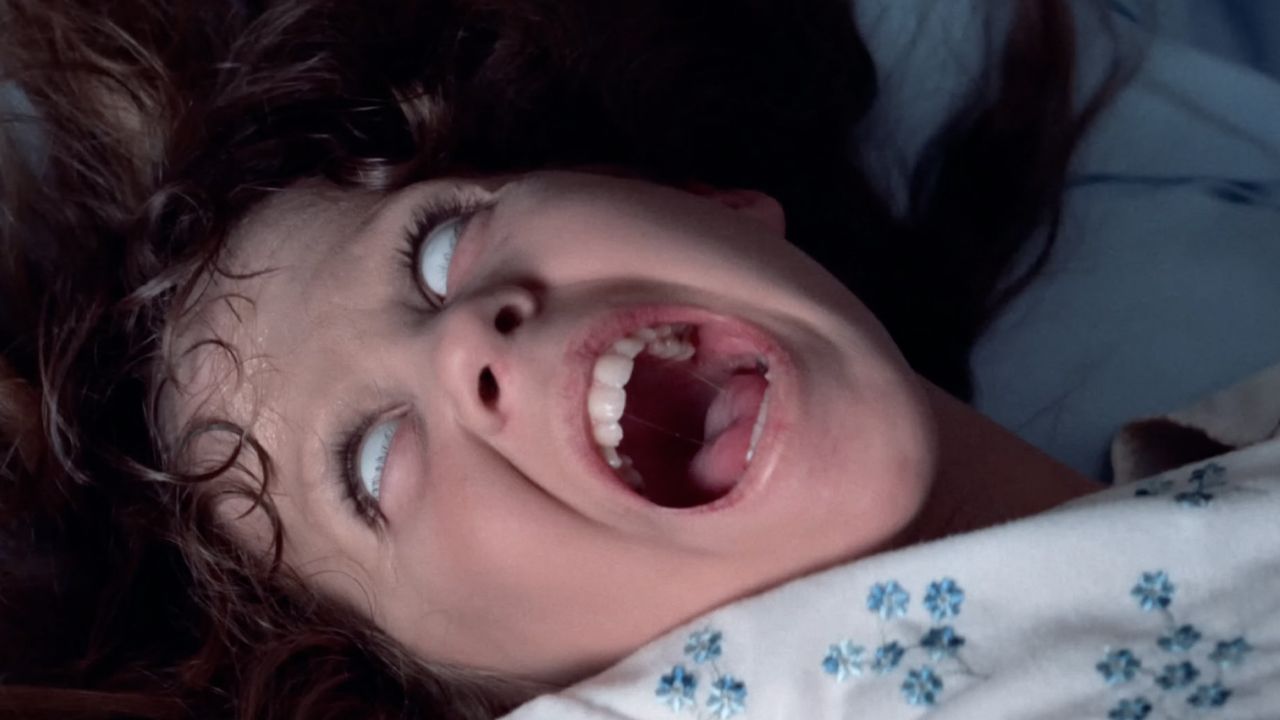
When I was growing up, The Exorcist (1973) was one of the most terrifying films I had ever seen, not for gore, but for pure, soul-shaking fear. Watching it felt like crossing a line you couldn’t uncross; it's a horror movie that left a mark on me. So when my 14-year-old daughter casually said she’d never seen it, I figured it was time. I expected terror. Instead, 45 minutes in, she turned to me and asked: “When does something happen?”
And just like that, one millennial’s best horror movies became Gen Z’s “this movie’s buns.” She tells me "buns" is bad. So, let's break down my experience watching one of my favorite horror movies with my daughter.
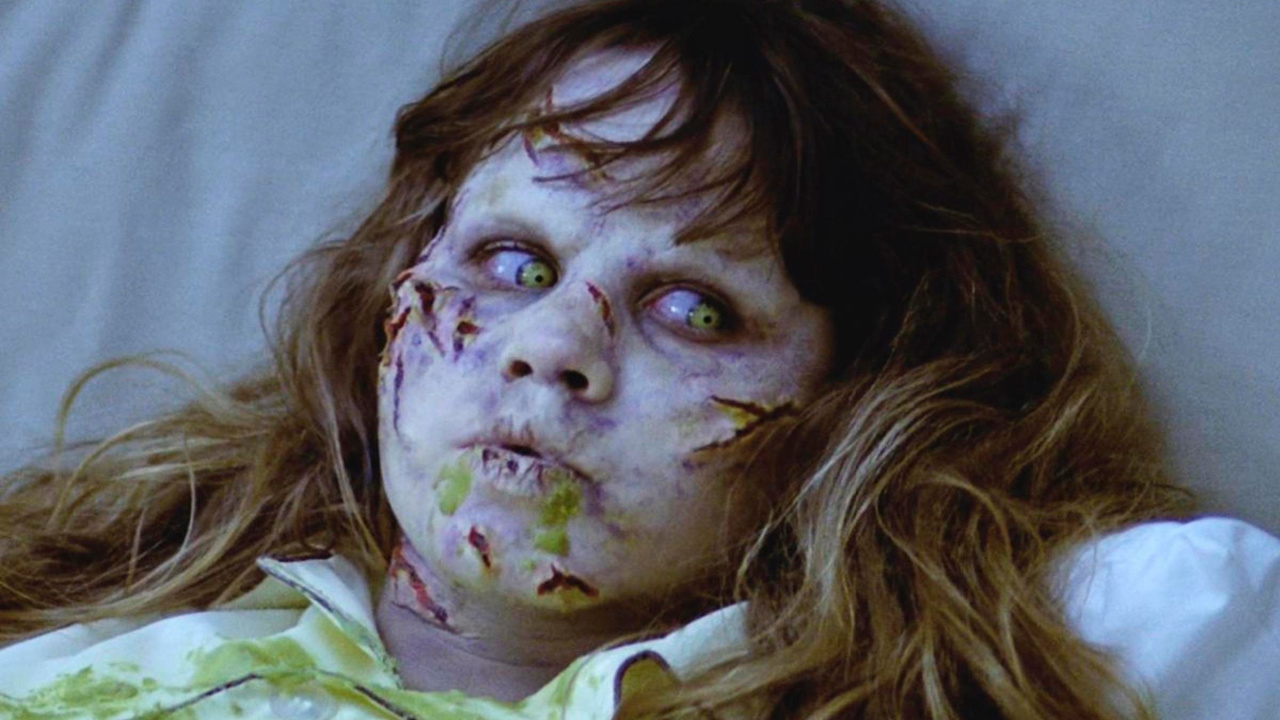
Gen Z Attention Span VS. The Slow Burn
She wasn’t bored—just confused. To her, The Exorcist didn’t feel like a horror movie. It felt like a drama. She’s not wrong. Like a lot of the best 1970s horror movies, it builds tension slowly. There’s atmosphere, dread, mystery. You don’t even know what’s going on for the first act. But Gen Z, raised on TikTok pacing and streaming-era speed, expects horror to "start."
To my sensibilities, The Exorcist remains terrifying today, but compared to new horror movie releases, such as Weapons, Bring Her Back, and Sinners, it doesn’t quite come out swinging. Today's horror movies sometimes feel like the scares aren’t earned; they’re scheduled. That’s not just about attention span—it’s about narrative expectation. Horror’s cinematic language has changed.
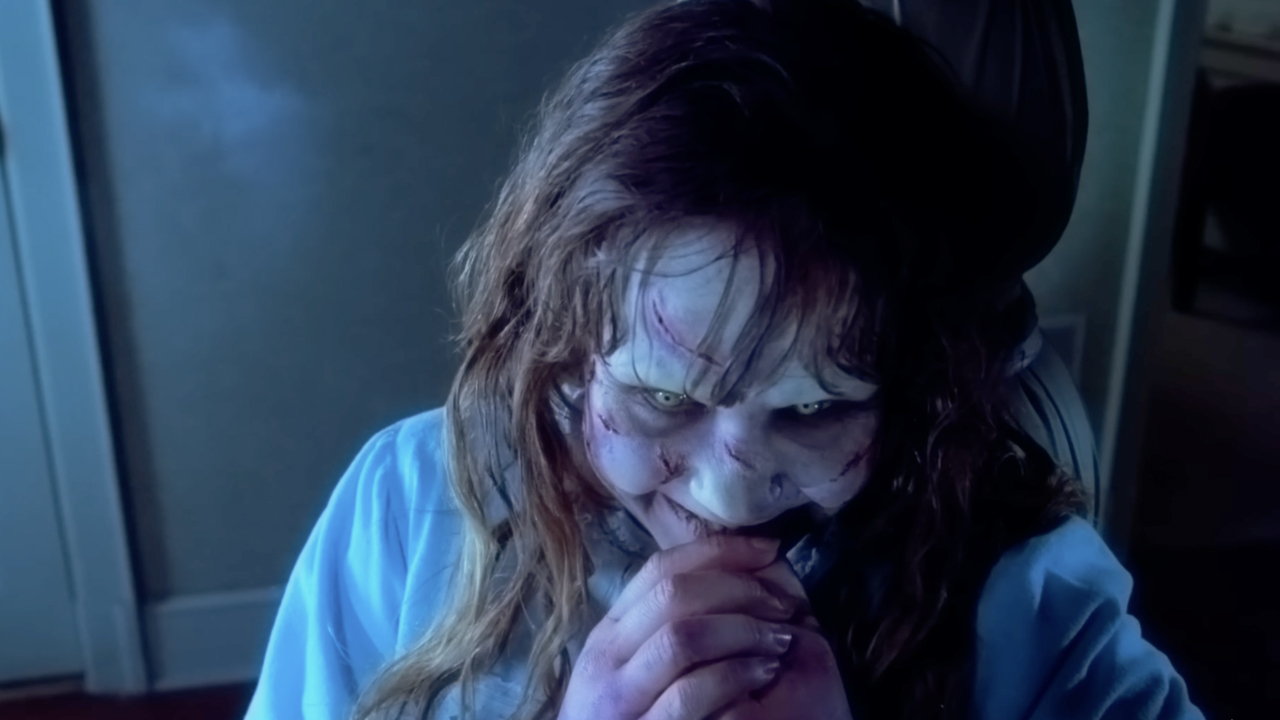
The Exorcist Is All About Building Dread, Not Jump Scares
Watching it with her felt like seeing it through new eyes, because she didn’t flinch at the attic door slam or the demonic face flashes. When Regan growled in her iconic demon voice, she deadpanned: “She sounds like an old smoker.”
She’s not wrong—if you know the movie’s behind-the-scenes lore, then you’re aware that actress Mercedes McCambridge actually chain-smoked and drank raw eggs to get that sound, according to director William Friedkin. But to my daughter, it wasn’t creepy. It was kinda funny.
Here’s the thing: my kid loves horror. She’s powered through the entire Conjuring universe, Hereditary, Barbarian, and both Smiles. But she’s used to hyper-edited, adrenaline-shot horror. The Exorcist, to her, felt like a slow museum crawl.
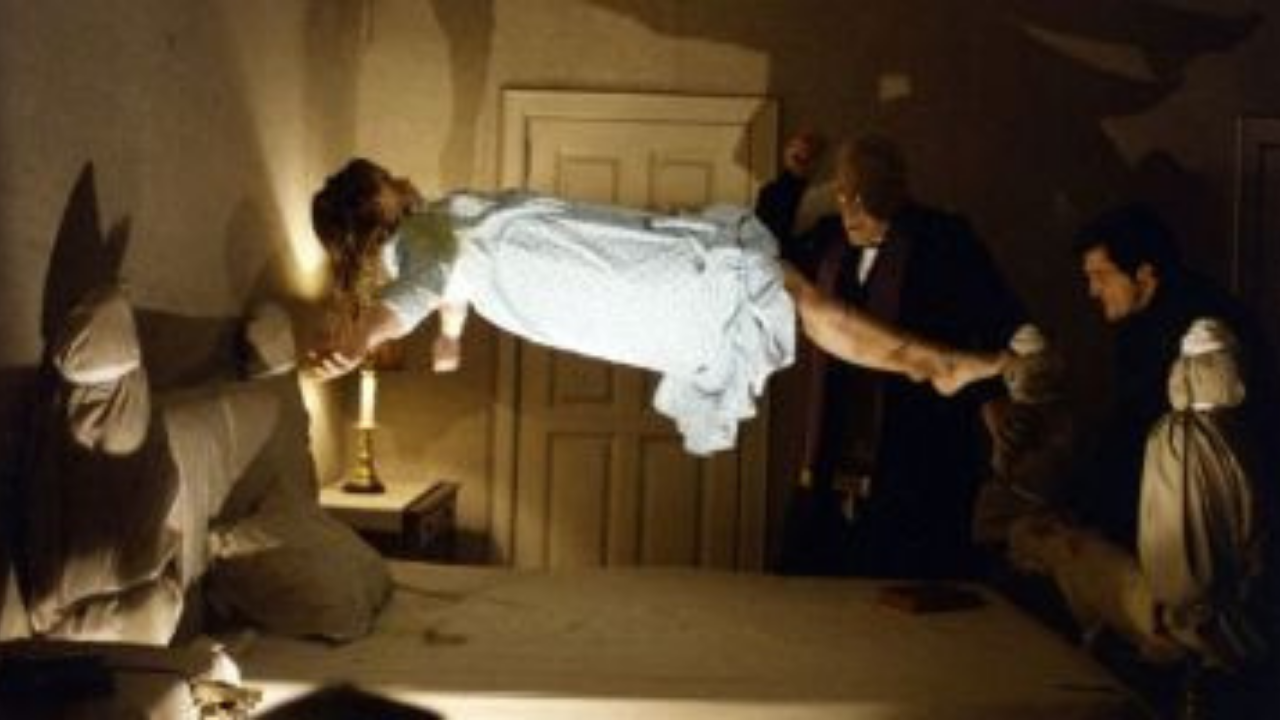
The Devil Isn’t Very Scary To Gen Z
Halfway through, I realized something–the religious fear wasn’t really landing. I grew up in a Pentecostal household. Crucifixes, Latin prayers, and holy water weren’t just props—they were loaded symbols. But my daughter, who’s been raised secular? The iconography didn’t register as scary.
For some Gen Z, especially with ever-growing secularism, Satan isn’t terrifying. Possession feels like mythology, not a threat. Their fears live elsewhere—in surveillance, identity, and climate doom.
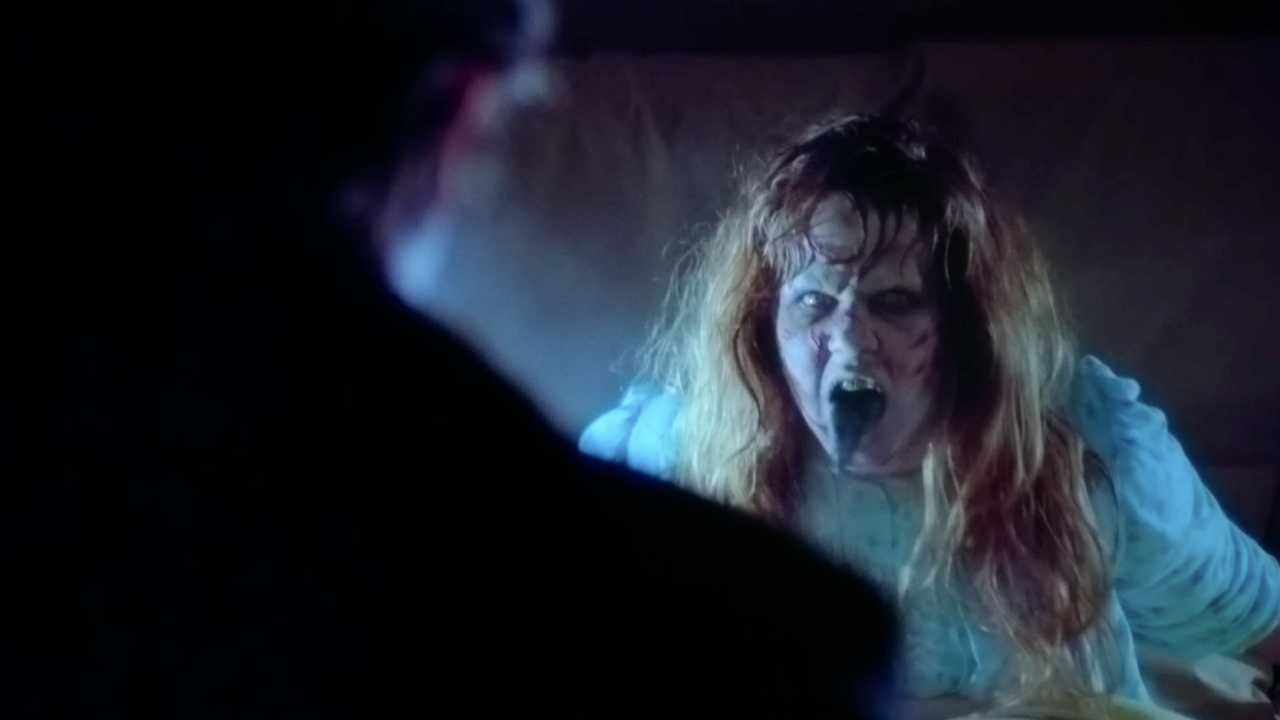
The Practical Effects Don’t Hold Up
Then there’s the practical effects. I still find them haunting—the spinning head, the shaking bed, the pea soup vomit. My daughter saw Spirit Halloween.
And honestly? Fair. She’s grown up with Stranger Things (available to stream with a Netflix subscription), The Last of Us, and A Quiet Place. Horror now comes in nearly flawless 4 K resolution. The seams in the 1970s effects are starting to show, now that it's 55 years old.
But near the end, something clicked. When Father Karras leaped from the window, she let out a soft “Whoa.” She didn’t fear the movie, necessarily, but she respected it. After the credits rolled, I asked if she’d watch it again. She said, “Maybe. It wasn’t really scary. Just... interesting.”
And I’ll take that because The Exorcist is interesting. It's a scary movie that lingers. And with the collapse of the original plan for the Blumhouse Exorcist trilogy, here’s hoping Mike Flanagan’s upcoming sequel can strike the balance—something that bridges the gap between old-school dread and modern terror. Something both Millennials and their Gen Z horror offspring can be scared of… together.







